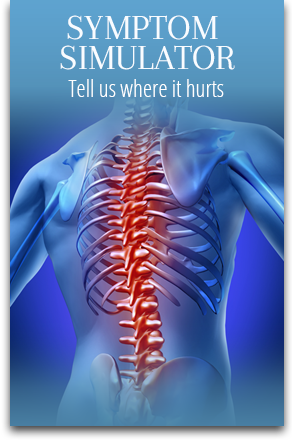Does the Neck Cause Hand Pain?
 Q: I suffer from unrelenting pain and tingling in my hand which is worst at night. I have been diagnosed with carpal tunnel syndrome and instructed to wear a wrist brace while I sleep. The brace helps me get through the night, but I still have many of my symptoms. Friends are telling me that my neck may have something to do with my pain. Does the neck cause hand pain?
Q: I suffer from unrelenting pain and tingling in my hand which is worst at night. I have been diagnosed with carpal tunnel syndrome and instructed to wear a wrist brace while I sleep. The brace helps me get through the night, but I still have many of my symptoms. Friends are telling me that my neck may have something to do with my pain. Does the neck cause hand pain?
A: The neck can cause pain in the hand. This concept is easier to grasp when one has both neck and hand pain simultaneously, but the neck (cervical spine) has the potential to cause hand, arm, head or neck pain. Simply put, the brain must communicate with the hand in order for the hand to move or feel. These “messages” are sent back and forth along nerves that pass through the neck part of the spine. The nerve comes from the brain and passes through the neck, through the elbow, through the wrist, and into the hand to deliver a message. Repetitive use of the wrist may lead to physical changes that irritate the nerve as it passes through the wrist (specifically a passage known as the carpal tunnel), and this may cause hand pain (or tingling, weakness). A certain amount of this physical change is required before carpal tunnel symptoms appear. The question is, can this nerve be irritated anywhere else? This other irritation often occurs at the neck and elbow, and a thorough examination is required to determine which is involved. There are 8 major nerves passing through the neck. Irritation of the 6th nerve will closely resemble classic carpal tunnel symptoms. This generally happens when the hole that the nerve passes through gets smaller (stenosis), and this most often involves a herniated disc or arthritic bone taking up that space; both are common at that level. I did say that a certain amount of physical change is required at the carpal tunnel to cause symptoms. That being said, there is considerable evidence to suggest that a nerve that is already irritated at the neck is, even more, sensitive to change at the wrist (“double crush syndrome”). If that is your case, treatment of the wrist is unlikely to alleviate all your symptoms, and the neck should be evaluated for diagnosis and possible treatment. Surgical and non-surgical approaches are available for such cases, and a proper examination will be helpful in determining which is most suitable for your condition.
Hugh Cradduck, DC







